Yumi vs Little Spoon Review
When the world says that children are the future, it’s true, so it’s important to keep kids going healthy and strong at all times. The best way to do that – through constant healthy eating.
Evidence shows that the introduction of healthy eating habits in the first three years reduces the risk of eating disorders in the future. As described in a review article by L. Cooke, children like what is familiar and they eat what they like. Offering a wide variety of foods from the early years will influence healthy eating choices in adulthood.
I know it’s not always the easiest to provide healthy and well-rounded meals all day every day, especially for picky eaters! However, with the assistance of infant and children’s meal deliveries, the impossible becomes a lot more likely.
While there are a number of businesses making their way into this market, my Yumi vs Little Spoon review will focus on two of the top options on the market.
Table of Contents
About Yumi
Bring on the organics with Yumi. This brand is all about science, ingredients, and good times. Combining years of research with top-quality food, this business joined the market in 2012 to create meals that helped children meet each milestone with ease.
Reducing sugars and raising the nutritional profile, Yumi founders worked alongside dietary specialists and medical advisors to research what dietary aspects were needed to help the brain grow from infancy to preschool age.
Covering a range from 6-month to 24-month-old children, the dozens of meal options specifically cater to healthy growth and development.
About Little Spoon
Since 2016, Little Spoon has served families fun and healthy meals for kids. Originally launching as Babyblends, this company began in the organic baby food market before seeing the gap in the industry that existed beyond those infancy years.
Moving to include not only meals for babies, but also toddlers and children, most recently the brand has also begun to consider budget, now selling a line of $5 meals for toddlers and kids.
Easy to prep, healthy to eat, these meals serve up a stress-free situation for parents who don’t want to sacrifice health for money and time.
What to Consider
Before buying from just any organics company, it’s important to understand what goes into the business, products, services, and more. This Yumi vs Little Spoon review will go deeper into the details, but before that, I wanted to check out a nice overview of company aspects for potential customers to consider.
Product range
Both of these brands are great with offering up healthy and organic meals and snacks for infants, but their businesses expand a bit beyond that initial goal.
Little Spoon’s subscription meals also offer options for toddlers and children, expanding beyond the infancy term that Yumi brings to the plate.
In addition to that, Yumi provides vitamins for toddlers to adults as well as fun merchandise while Little Spoon sells snack smoothies, boosters, and vitamins to maintain healthy living.
Age range
Age range really comes down to how long you’re looking to commit. For those who want the routine going for infancy, Yumi covers 6-month to 24-month-old babies only.
Those looking for a longer subscription life (who doesn’t want easy meals coming for years?) will be satisfied with Little Spoon’s “Big Kid Bites” to continue on the tradition after the infant and toddler meals become a bit too slim for those growing, energetic kids.
Variety of meals
I’ll be honest, this one is somewhat split. Yumi’s infancy food line holds over 60 different flavors of foods throughout the five-month span that the brand covers.
The American Academy of Pediatrics recommends offering your child a substantial variety of foods to avoid picking eating behaviors later on. It takes as many as 15 tries for a kid to get used to a new taste, so don’t get discouraged if she refuses to eat it the first few weeks.
Little Spoon doesn’t sit nearly as close with only 16 foods for infancy. They do, however, offer a wider age range that includes a further 28 meals for toddlers and children.
Subscription flexibility
Both brands are quick to offer easy pauses on subscription plans. There are deadlines for each business that acts as a cut-off point due to preparation and shipping, but that’s reasonable enough considering timing is needed to get things ready for delivery.
As for the meal plans themselves, again, both companies are happy to allow switches and substitutions until the deadline hits.
Accessibility
Both Yumi and Little Spoon are online stores due to their subscription methods. These businesses keep things out of stores and bring their products straight to customer doors.
Yumi offers three sizes for their plans to meetmatch the nutritional requirements at every stage with whole foodslevel of supplements required in place of breastmilk with plans starting at $5.
Little Spoon also has a range of pricing depending on the amount of food ordered, but their reasonable plans also begin at $5.
Yumi vs Little Spoon: How Do They Work?
Starting any subscription can be a bit scary, so I wanted to take time in this Yumi vs Little Spoon review to really open up about the process of both businesses and how they function over time.
Yumi works through their Milestone Plan, guided by medical advisors and childhood educators who have noted the developmental marks that children should hit and the nutrients they need to get there.
The entire process spans 6 months to 24 months in infancy, transitioning children from purees to more solid finger foods, working with not only exposing new flavors to the palette but also sensory aspects through the solidification plan. As described by S. Nicklaus and colleagues, the introduction of new textures at each stage has a positive impact on the normal development of the oral cavity and the acceptability of foods.
Sample food selections and plans are available online to help guide parents through what to expect at each marker. Subscriptions are delivered weekly, and foods are not only allergen-free but also last up to 7 days refrigerated or two months when frozen.
If the food for the week doesn’t get used, toss it in the freezer for later or pause the next delivery for a week or two until it’s needed again.
Little Spoon sets out plans according to meal type and age: Baby Food, Toddlers and Kids, and Smoothies. All baby food purees are GMO-free and hypoallergenic for a healthy and happy infant’s eating.
Toddler and kid meals enter the finger food territory to start mixing in solids and sensory aspects. These meals have their own categories that go so far as to include fast prep and picky eaters to help identify just what would work best for the child and household.
As for smoothies, they’re cold-pressed snacks ready to provide healthy eating options for kids at any time.
Little Spoon spaces things out a bit more with deliveries made every other week. Customers can easily log on to switch up their plan, pause, or even cancel the subscription.
Their food remains fresh for 14 days when refrigerated but should be eaten within 48 hours after opening. Freezing options are also available, staying fresh for up to 3 months after delivery.
It’s difficult to pit the two against one another as their age range really does create a difference in the need for each brand. With that being said, I love Yumi’s transitional aspect that guides children through each milestone and works them through smooth to solid foods in a span of 18 months.
Yumi vs Little Spoon Food Blends Review:
Rather than only expanding on the businesses and their services offered, this Yumi vs Little Spoon review wanted to consider the products themselves.
Both are known for their baby food blends and organic ingredients so that’ll be our key focus, but where do they differ? With the variety of flavor options available, I found a few similar products to partner up for a look at just how these items are marketed and what all they include.
I’d love to throw some prices into this product section, but unfortunately, many of these are subscription only and don’t list any costs as a result. Typically it works out to $4 per meal through Yumi and $3 per meal with Little Spoon.
Yumi Butternut Squash vs Little Spoon Butternut Squash Review
A staple of most baby food companies, butternut squash seems to be a flavor most parents settle on giving their child. Yumi and Little Spoon each have their own take on this iconic food.
Yumi’s Butternut Squash lays out all the information parents could ever need to know on their product page. Highlighting the key nutrients gained from this meal (fiber, iron, magnesium, vitamin A, and copper), this brand doesn’t stop with what’s in the food itself.
This brand also makes note of how these nutrients will aid development, highlighting that both the brain and muscles will be aided by the inclusion of these elements into a 6-month-old’s diet.
No added allergens, GMOs, or dairy, this organic meal will provide a tasty step towards that next milestone.
Sweet and smooth, the Little Spoon Butternut Squash comes in as a perfect introductory food to start that journey from milk and formula into the first bit of new textures.
High in potassium as well as Vitamins A, C, and E, this simple soft solution is a great intro to the world of flavor for any infant. Categorized as a Starting Solid Blend, this meal aims to use key nutrients to guide children towards the notion of solids in their diet.
While both use the same key ingredient and flavoring, this Yumi vs Little Spoon review is partial to Yumi on this one. The brand simply provides more nutritional information on the meal and its ingredients leaving us more satisfied in knowing how the product was treated and what all it contains.
Yumi Purple Sweet Potato vs Little Spoon Avocado Green Apple Broccoli Spirulina Review
While there isn’t a perfect comparison for this one, I feel like both of these purees walk a similar line for 6-month-olds, so I’m sticking them together today.
Reminding parents that there’s more to development than just the brain and muscles, Yumi’s Purple Sweet Potato puree is all about increasing bone density for stronger movements and support in life.
This puree contains the same core nutrients as the Butternut Squash meal but adds in a new element of sensory teaching. Still working with single ingredients, this food begins to thicken the solution for a new texture to expose children to the possibility of new foods and feels.
Turning to Little Spoon, their Avocado Green Apple Broccoli Spirulina puree starts mixing up flavors for a new palette and profile. Thickened by the avocado blend, this food is a great transitory meal for moving from smooth solutions into a new branch of eating.
Packed with folate, proteins, potassium, and Vitamins C and B6, this formula introduces new nutrients into the infant’s system to strengthen their body through that inevitable growth.
Both brands are offering up a great thicker product for the transitory period from the initial purees onto more solid foods. I love Yumi specifying the development of bone growth being aided by their mixture, but I’d go with Little Spoon on this one due to their initiative in combining flavor profiles and the nutrients offered with each bite.
Yumi Carrot & Raspberry vs Little Spoon Carrot Apple Buckwheat Cinnamon Seed Flax Oil Review
Baby food doesn’t just jump from silky smooth purees to eating those eternally messy finger foods – the process is all about a balanced transition, which both of these brands offer their own take on.
Yumi continues to enhance their mixture for 7-month-olds and over through the introduction of ingredient blending in their Carrot & Raspberry mixture.
Still soft enough for babies to gum away at, this slightly thicker solution rich in vitamin A supports eyes and immunity through that perfect blend of nutrients. Sweet and a bit tart, infants are sure to smack away at these flavors, ready to come back for more at any time.
Little Spoon graduates from a multi-produce mix to what they call Complex Blends with their Carrot Apple Buckwheat Cinnamon Seed Flax Oil meal. Thickened for a firmer texture to introduce more chewing into their routine, this product not only adds a new sensation but also a wild ride of flavors to explore.
Tasting great isn’t the sole purpose of these ingredients – each item was specifically chosen to load bites up with antioxidants, fiber, Omega-3s, proteins, and Vitamins A and K.
Packed with power in each spoonful, infants working their way towards solids will be pleased as anything after adding vanilla and cinnamon to their palette.
This Yumi vs Little Spoon review has to go for the powerful punch offered by Little Spoon in this case. Endless nutrients, a perfect thickness, and flavor to spare – what baby wouldn’t love to explore new horizons of taste?
Yumi Kid Biteamin vs Little Spoon Wiz Kid Review:
Babies aren’t the only age group deserving of the proper nutrients needed to grow. While Yumi shies away from meals beyond 2-year-olds, their lines of vitamins extend to all ages, even offering a selection for adults. Little Spoon has more meals on the market for children, but their interest doesn’t stop there as they too get involved in the world of vitamins and supplements.
A study published in the Journal of the American Dietetic Association highlights that vitamin and mineral requirements can be generally met providing your child with a variety of healthy foods. Supplements are recommended for those with special needs. However, the authors advise being cautious not to exceed the maximum limits for each micronutrient. I’d recommend asking your child’s doctor before starting vitamin and mineral supplementation.
Yumi’s Biteamins are a fun and flavorful opportunity to pack kids full of the nutrients they need every day. These gummy vitamins support growth physically and mentally as each day kids get their serving of 21 vitamins and minerals to keep their bodies running at full speed.
Unlike other products from either one of these brands, Biteamins are available for a single purchase of $33 or a monthly subscription of $30 per bottle.
Little Spoon chooses to focus on Iron and DHA rather than a general multi-vitamin. Their Wiz Kid selection comes in “sticks” of powder that mix in easily to any food or drink.
DHA is an omega-3 fatty acid essential for infants’ brain growth and development as well as a healthy visual function. It also has proven to improve the cholesterol profile, lower blood pressure and prevent cardiovascular diseases.
Infants and toddlers have high iron demands due to their rapid growth. As described in a review article published in the Journal of Pediatric Gastroenterology and Nutrition, infants and toddlers should receive foods rich in iron or iron-fortified foods from the age of six months.
Perfect not only for children, but also infants to boost their iron, calcium, and DHA levels, this supplement aids development of the brain to keep things firing at all cylinders. Completely vegan and easy to mix in, there’s little easier than hiding health in pre-existing food or beverages.
I do love that Little Spoon’s Wiz Kid mixes are for a variety of ages, but I’m leaning towards Yumi on this one. Handing out gummy vitamins each day is simple to slip into the routine and each bite is packed with over 20 vitamins made to help the mind and body. Why not cover it all in one easy go?
Plus, I love the separate shipping and pricing option of this one – give it a try without the full commitment to see how things settle in the children’s new routine. Yumi wins our hearts this round.
Yumi vs Little Spoon: Quality of Ingredients
This Yumi vs Little Spoon review knows how important the quality of ingredients can be for any food (let alone what we’re feeding our children), so it only makes sense to make note of how these brands work through this process.
The simple answer? They both offer completely organic, naturally grown, and GMO-free foods. There’s no room here for error as both businesses are incredibly strict in their ingredients, wanting only the best for the babies eating these blends. The real differences between these brands actually come from their preservation methods.
Yumi works through a Modified Atmosphere Packaging (MAP) method to preserve and seal up their foods. Commonly seen to be used with meats and seafood, this method introduces a gas barrier to surround the food that inhibits bacterial growth for a longer preservation period. This retains flavor and vitamins while allowing for a longer shelf life.
Little Spoon uses something called the Cold Pressure Technique or High-Pressure Processing. This highly sanitary process often appears in the use of juices, purees, and ready-to-eat meals.
The intense pressure of this method removes the need for any heat in the process and inactivates kills all bacteria while maintaining high vitamins and nutrients. This means a longer shelf life with all the best parts in place and ready for eating.
Both methods do their jobs well. They’re common technologies to use for processing those top-tier organic ingredients. I’d lean slightly more towards Little Spoon on this one as their method allows for a 14-day refrigerator lifespan as opposed to Yumi’s 7-day option. Plus, the knowledge that the pressurized system kills off bacteria is never a bad thing to have in mind.
Yumi vs Little Spoon: Price & Value
Baby food can definitely add up quickly, so price and value aren’t something this Yumi vs Little Spoon review could overlook. Unfortunately, there’s more to this one than simple product pricing.
Baby food itself sits at reasonably low prices, but Yumi definitely is the pricier of the two. It seems to be a pattern across their products to sit at similar pricing, but with Yumi consistently coming in a bit higher.
For example, Yumi products list at:
- Baby food – $4
- Vitamins – $30
- Fruit Snacks – $9
- Snack Puffs – $9
While Little Spoon prices sit at:
- Baby food – $3
- Toddler and child plates – $5
- Smoothies – $3
- Vitamins – $6
But let’s be honest here, few people will be ordering an individual product from either of these companies. I’d be remiss not to include the three pricing bundles from both brands for a proper comparison.
- 8 Jars Weekly – $35/week or $28/month
- 16 Jars Weekly – $65/week or $52/month
- 24 Jars Weekly – $90/week or $72/month
- 1 Jar Daily – $24.50/week
- 2 Jars Daily – $45/week (regular $49/week)
- 3 Jars Daily – $57.75/week (regular $73.50)
It’s important to remember that Yumi ships weekly while Little Spoons operates on a schedule of every other week, so more products will appear for the two-week period.
Based on product prices alone, Little Spoon would win this one in a heartbeat. Both offer great ingredients, quality, and timely services, so the low product price would seal the deal. The issue here comes from shipping.
Neither brand openly lists shipping prices on their site, but some research revealed that Yumi offers free shipping to customers, while some reviews have reported that Little Spoon charges a shipping fee depending on the location of delivery. This can switch around costs after adding in the products being ordered at the time.
There’s no clear winner in this one. Little Spoon definitely has the lower pricing but requires shipping fees. Ultimately, for those shopping for more than just baby food, this one would be the way to go as their prices typically sit low enough that a $5 difference doesn’t make too big a difference, but it all depends on the order size and products.
Yumi vs Little Spoon: What Do Customers Think?
Before wrapping up this Yumi vs Little Spoon review, I wanted to take a minute to check out how the online reputations of these brands stack up. Our first glance proves that both companies have decent followings.
The brand’s own site clearly shows some love as they rate 4.6/5 stars based on over 1k ratings. Facebook doesn’t offer star ratings for this business, but the over 40k followers speak for themselves.
Covered by a variety of parent blogs such as Motherhood Community, Mas and Pas, Fit Healthy Momma, and more, it’s easy to see that this is a popular name amongst the parental crowd.
So, why does this brand get so much attention? A lot of it comes down to quality and method. The quality of their ingredients is unparalleled as they’ve removed all GMOs and allergens from food, leaving only the best nutrients in every bite.
Carefully prepared weekly for a fresh experience, these foods really make their stand through the Milestone method used. Parents adore knowing that the quality food they’re investing in meets every developmental milestone and provides all the vitamins needed at the right time.
There’s a lot I could say about this brand’s best parts, but I’ll let some top comments speak for us:
- “We love Yumi! It’s been fun trying all the different flavors and experimenting new foods with our little one. Delivery is always on time and carefully packaged on ice; we live in AZ so this is very important to us. Both my husband and I work full-time and although we had every intention of making our own food, we found ourselves overwhelmed. I also like the fact that each order is specific to age.”
- “As a busy working mom Yumi has been such a lifesaver! I feel good about what my baby is eating, it’s conveniently packaged for on the go and he’s getting really adventurous! Customer service has always been exceptional, and I love how easy it is to pick what goes in the box.”
- “As much as I enjoy making my own baby food, I don’t always have the time. Yumi is convenient, super tasty and I love the quality of the ingredients. I know my little one is getting the nutrition she needs, and I don’t have to spend a ton of time in the kitchen.”
As for Little Spoon, the love is far from lacking. While the brand doesn’t host their own reviews, they have been covered by a number of blogs such as The Spruce Eats (rated them 4.1/5 stars), Healthline, Meal Matchmaker, Fit Healthy Mamma, and more.
Though we can’t rely solely on numbers here, we can be satisfied by the posts dedicated to how this brand has helped households.
What exactly holds the hearts of these customers? A lot of it comes down to the quality, selection, and easy subscription service. Reducing stress surrounding not only feeding infants but also toddlers and children, this brand really stands out for their age options.
Making it simple to skip, pause, or cancel, this brand surrounds themselves with a customer-first mentality to make everything about the little ones who are in need of those nutrients.
But don’t just take our word for it – I’ve grabbed just a few quotations from happy customers that highlight these aspects and more:
- “Little Spoon bridges the gap for parents and offers a few different options that might work depending on the age of your children. Parents struggling to find fast, nutritious meals for their kids or parents who are time-crunched or in a meal rut may find Little Spoon to be a good fit.”
- “While Little Spoon is significantly more expensive than store-bought baby foods, it’s one of the few services offering fresh, high quality, and organic baby and toddler meals.”
- “Being able to cancel or let the company know which blends your baby’s love is also a massive plus for stressed-out, busy parents. While it would be nice to see more upfront pricing transparency, the variety of options and tailor-made nutrition are definitely worth investigating. Finally, it’s pretty sweet that each package, as the name suggests, conveniently includes a tiny spoon.”
It’s easy to see that both brands have their own sets of followers, but I’d tend to lean towards Yumi on this one based solely on the fact that they offer higher numbers and their own set of online ratings. I will say that customers seem happy with both though, so it’s a close call.
Yumi vs Little Spoon: Promotions & Discounts
No one wants to pay full price for things when discounts can be found. That’s why for this Yumi vs Little Spoon review I took to searching for all the best deals to show off just what they have to offer. I’m not going to get too detailed but instead will keep things short with a quick listing of all of the best discounts.
Yumi:
- 50% off first order after registering email
- 10% off for military personnel
- 10% off for medical workers
- 10% off for teachers
- Military discount
- Multiple’s discount (those with more than one kid, twins, triplets, or more)
Based on the bullet points alone, it’s simple to see that Yumi has more to offer in terms of discounts. It’s not unheard of for either brand to go on sale, but for those who fit one of the categories listed above, go with whatever brand offers the best.
I’d say Yumi holds a better position in this category based on how many discounts they offer, but I can also appreciate Little Spoon’s shout out to parents with multiple children who may need the financial help.
Yumi vs Little Spoon: Shipping & Returns
Shipping and returns can truly make a difference in purchasing from any brand. That’s why I’ve compiled all the info needed in one easy section to provide the best details without any stress.
Starting with Yumi, this brand ships weekly with no additional delivery fees. All customers within the US have these products and services available to them.
The brand works through online subscriptions, meaning customers are able to access their accounts online and alter the information by selecting meals, skipping weeks, pausing, or even canceling their account with a few clicks.
As for returns, Yumi states that customers have 24 hours from delivery to file any complaints regarding the products received. Send an email to customer service with reports of the issue and they’ll get back on whether it qualifies for a refund or credit. The only product able to be fully returned is the Biteamins, which have a 30-day return policy.
Turning to Little Spoon, this brand requires shipping fees in accordance with the location of shipping. Adding in the zip code upon checkout will calculate fees (typically a flat rate) that will be required for each shipment. The continental US is served with every other week shipping from this brand to provide two weeks’ worth of meals at a time.
There’s not much to say for Little Spoon returns as this brand widely doesn’t accept them or offer refunds. They create plans per customer and tend to be stricter regarding changes in the guideline created by their professionals.
I have to go wtih Yumi on this one as not only does shipping come free, but they’re also more open to returns. It’s still a limited window, but at least the window exists.
Who Will You Shop With?
This is a hard one to decide due to the difference surrounding the products. While both brands offer great selections on baby food, that’s really where the similarities end.
Those who want a less expensive option that will carry beyond infancy should head over to Little Spoon. With lower prices and an age range extending up to 10-year-olds, this brand is a simple solution to save time and money throughout the first decade of parenting.
I will say that those who want a more involved plan and a wider selection of flavors should head to Yumi. Over 60 flavors and the guided Milestone plan really do make a difference to parents who want assurance that their children are getting all nutrients needed.
Everything is broken down into a number of phases matching with the month and developmental stage of the child, so it doesn’t get much easier than that.
It all comes down to what’s needed at the time and how far you’re looking to take it. Either option works – it’s all about preference in the end.
Check out related reviews you might like:

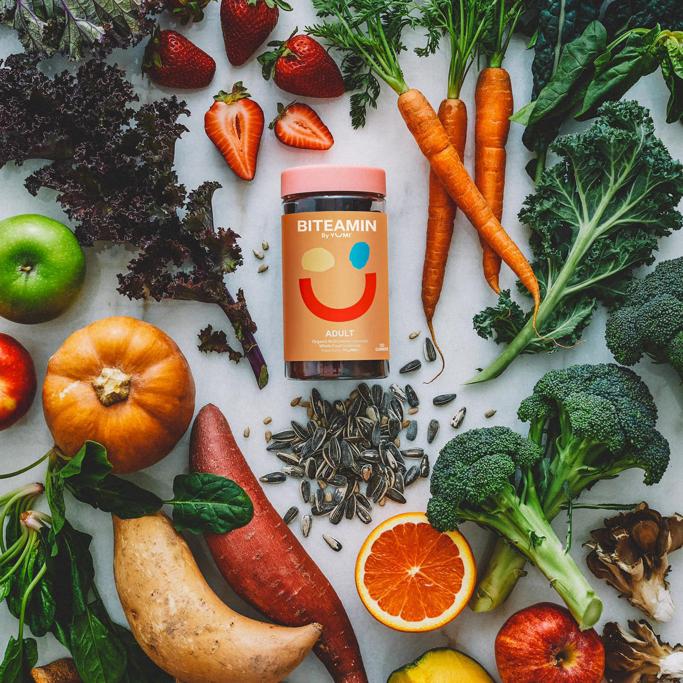
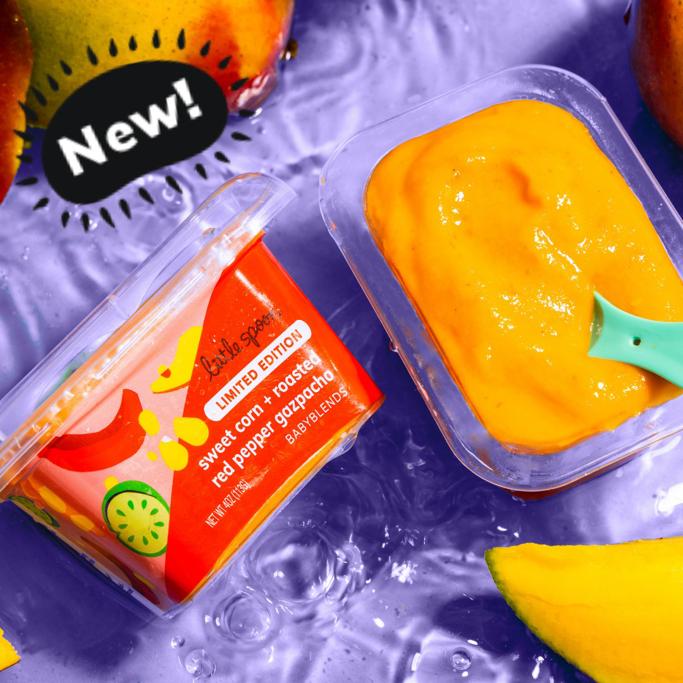

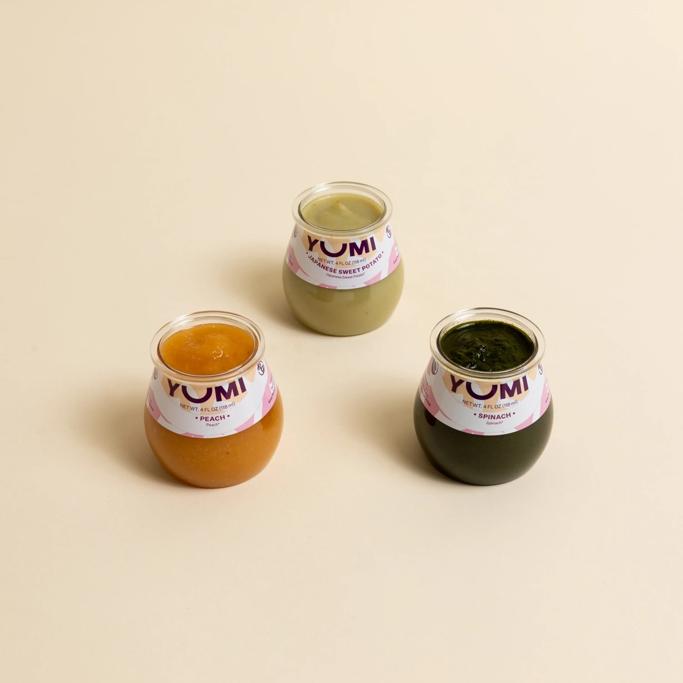
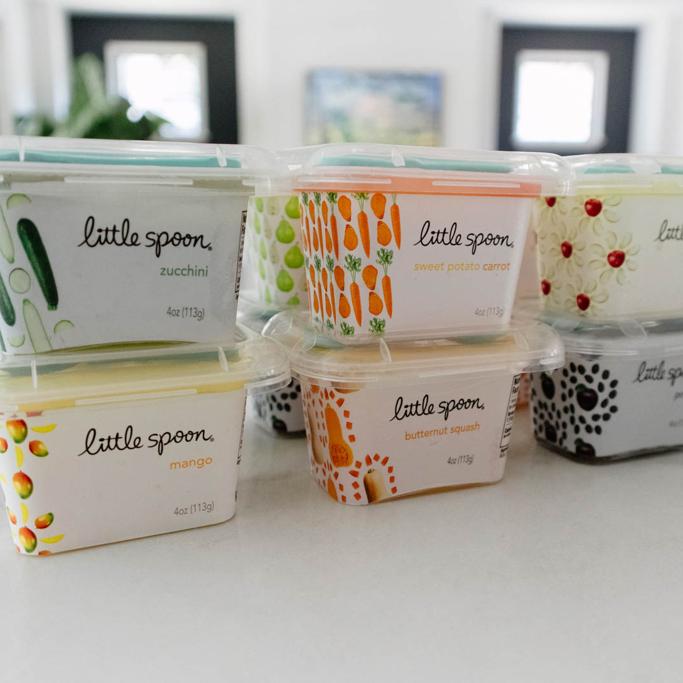
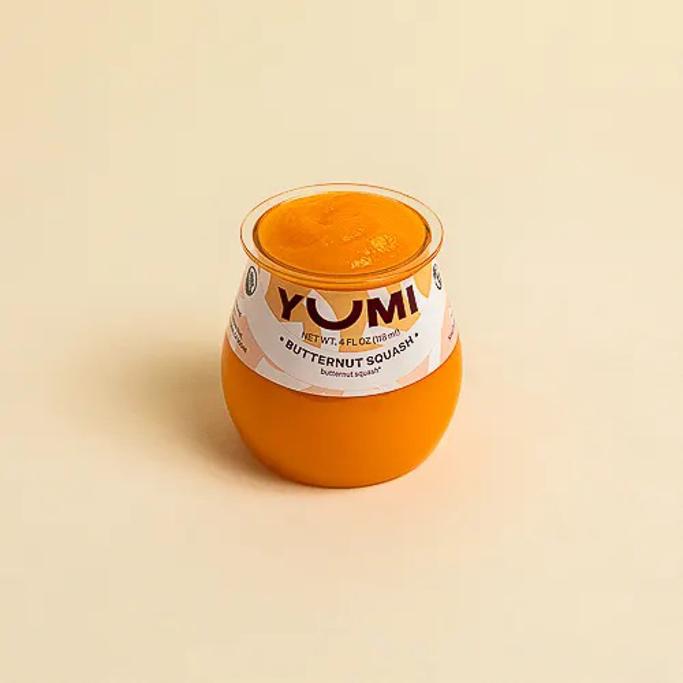
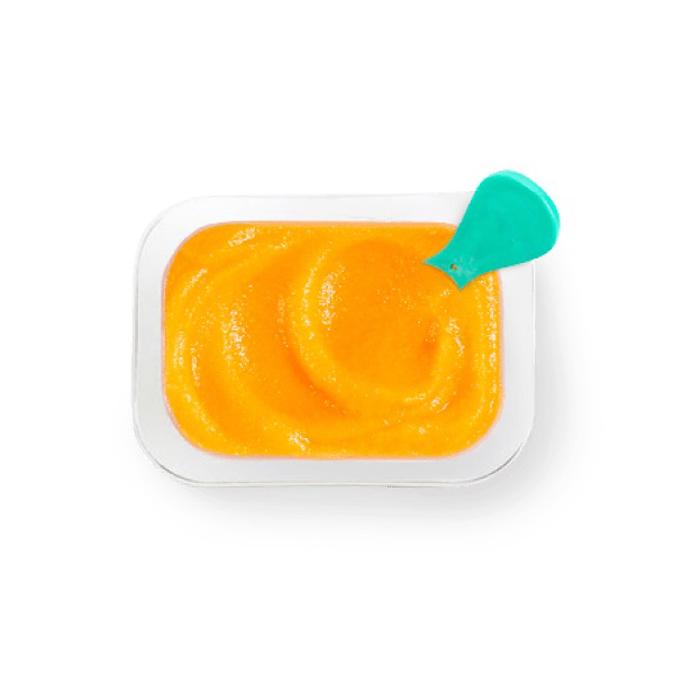
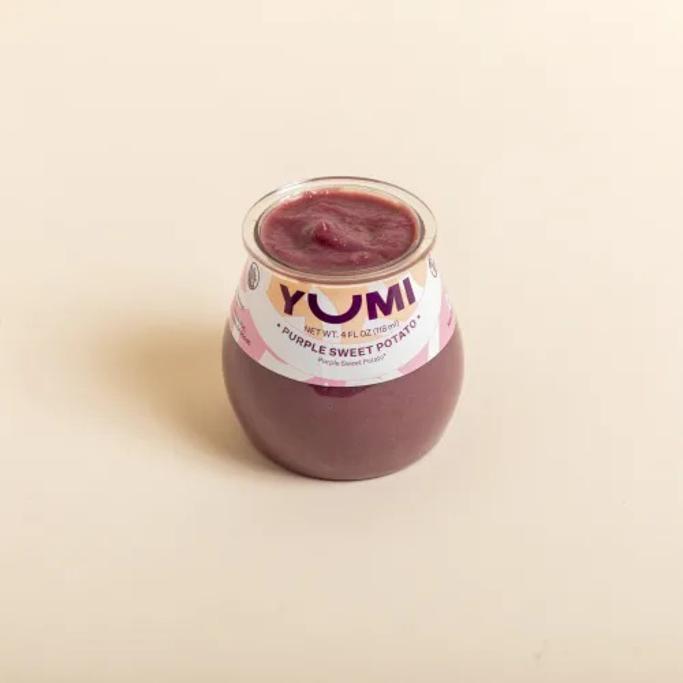
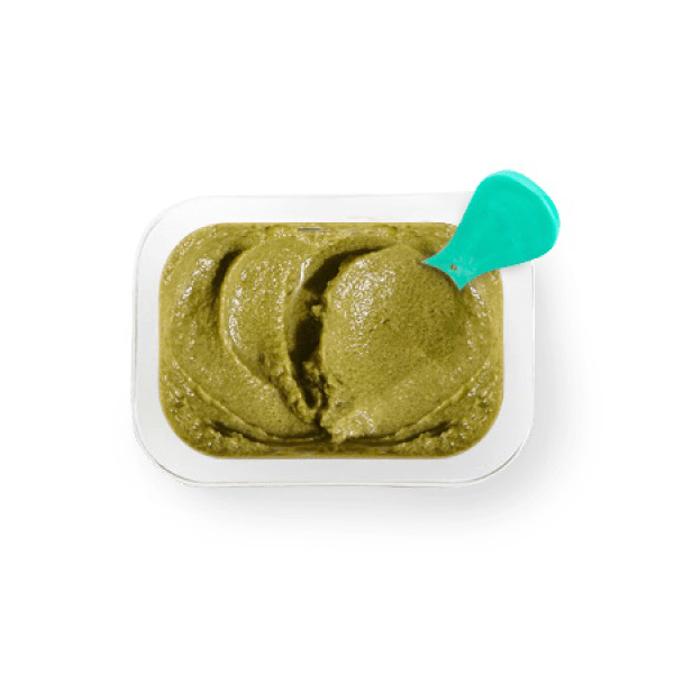
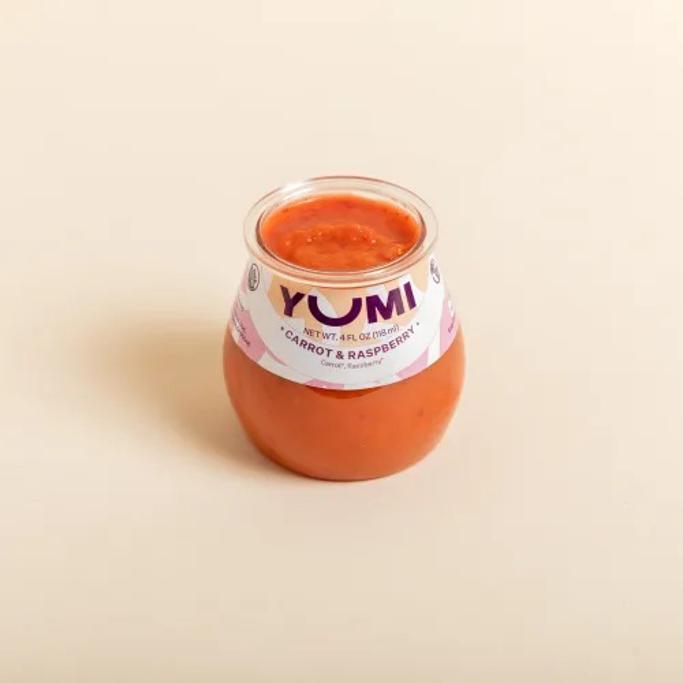
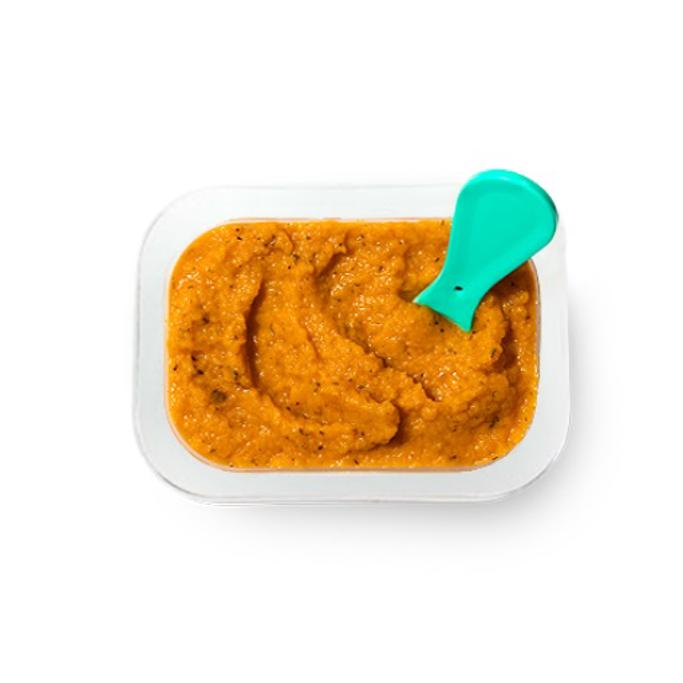

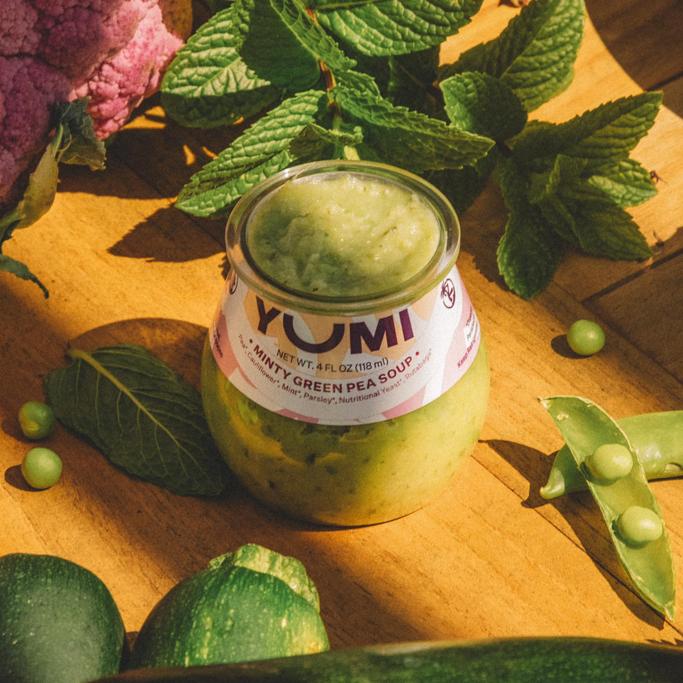
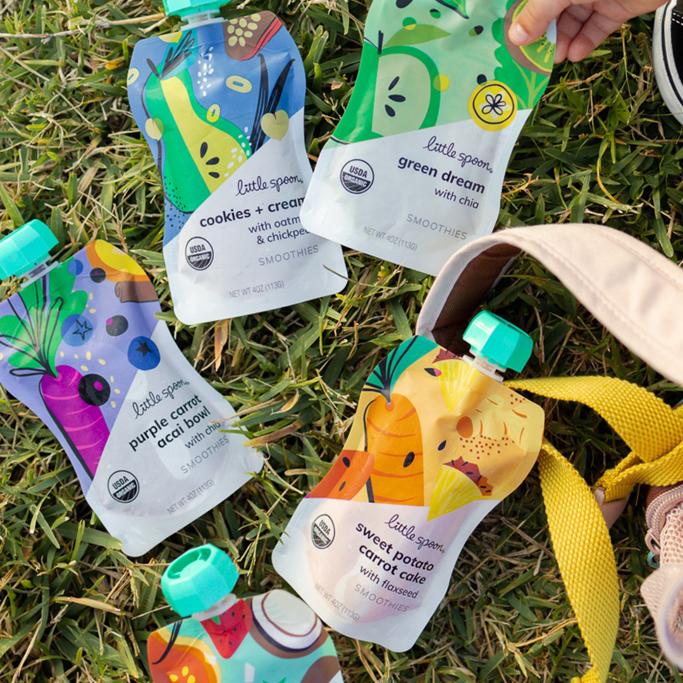

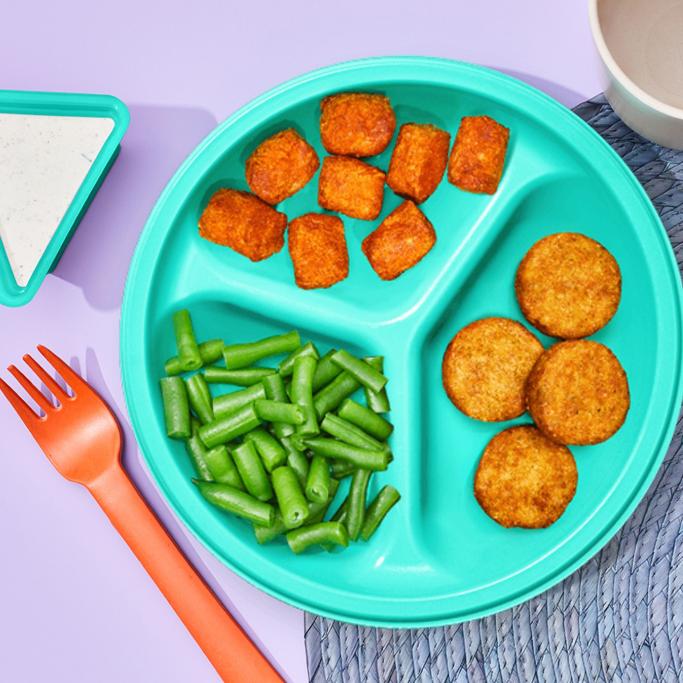

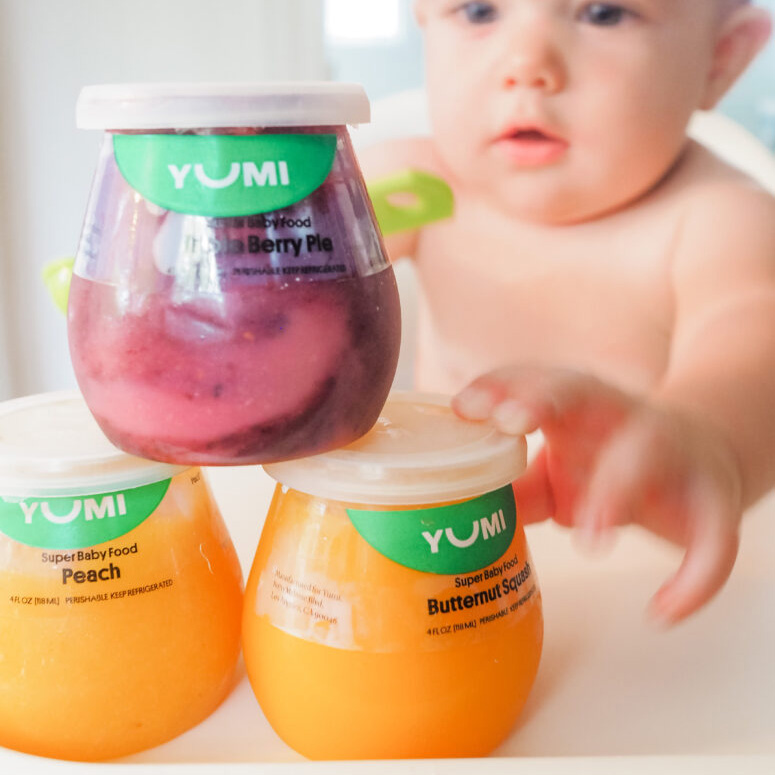
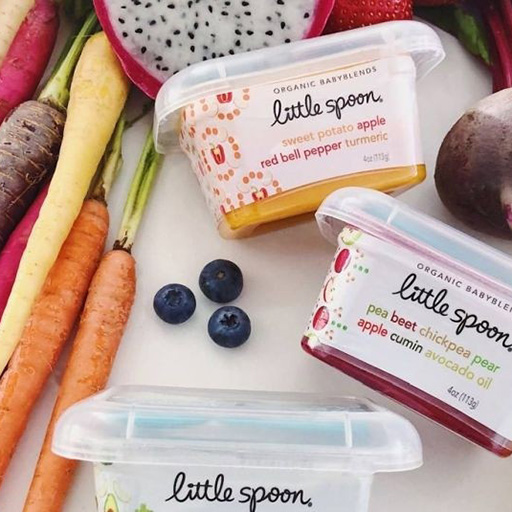

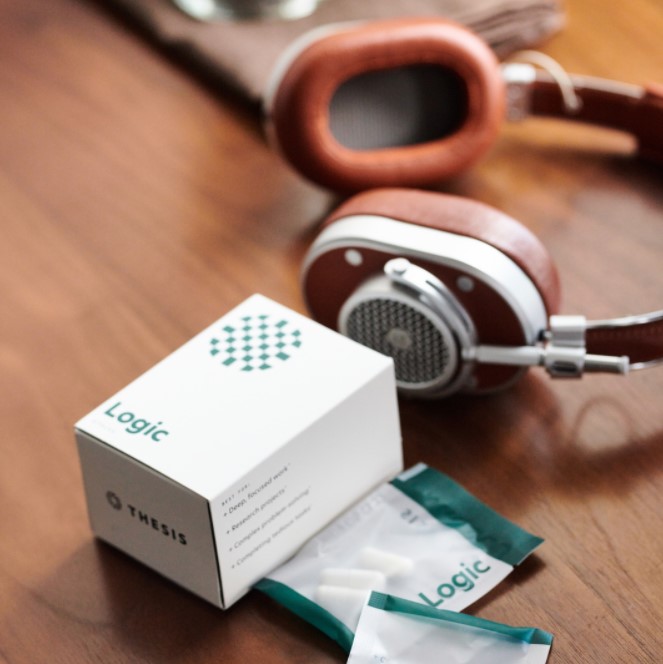
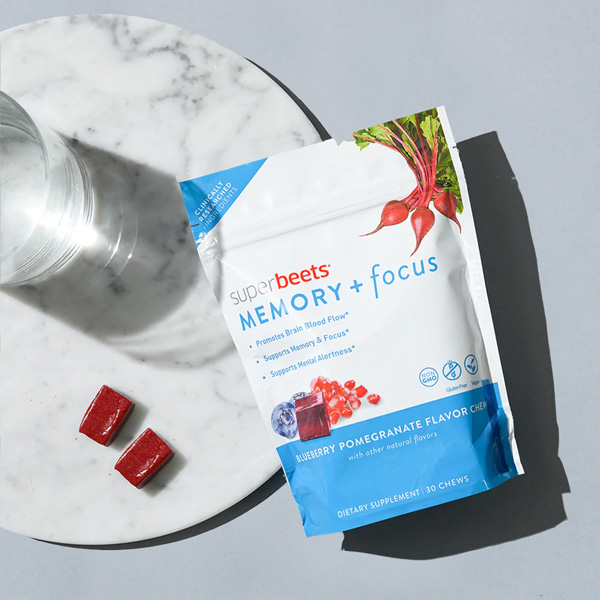
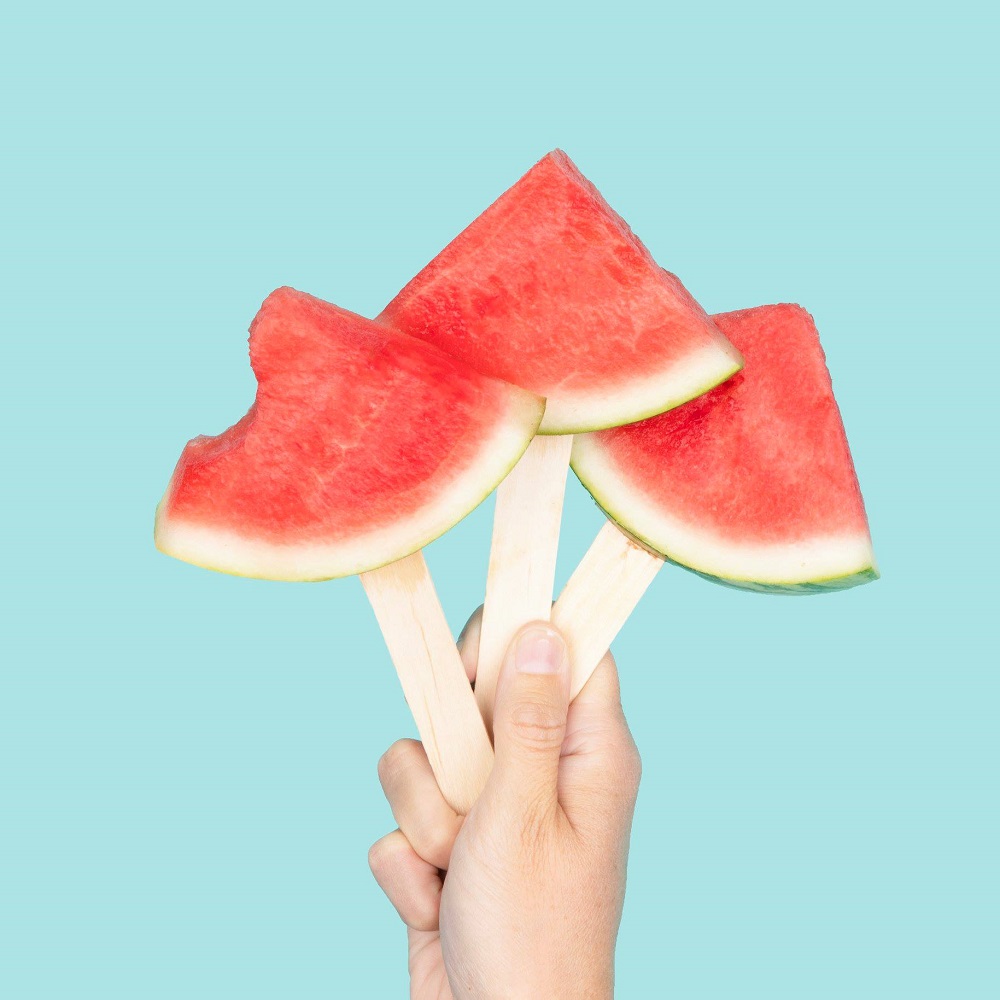
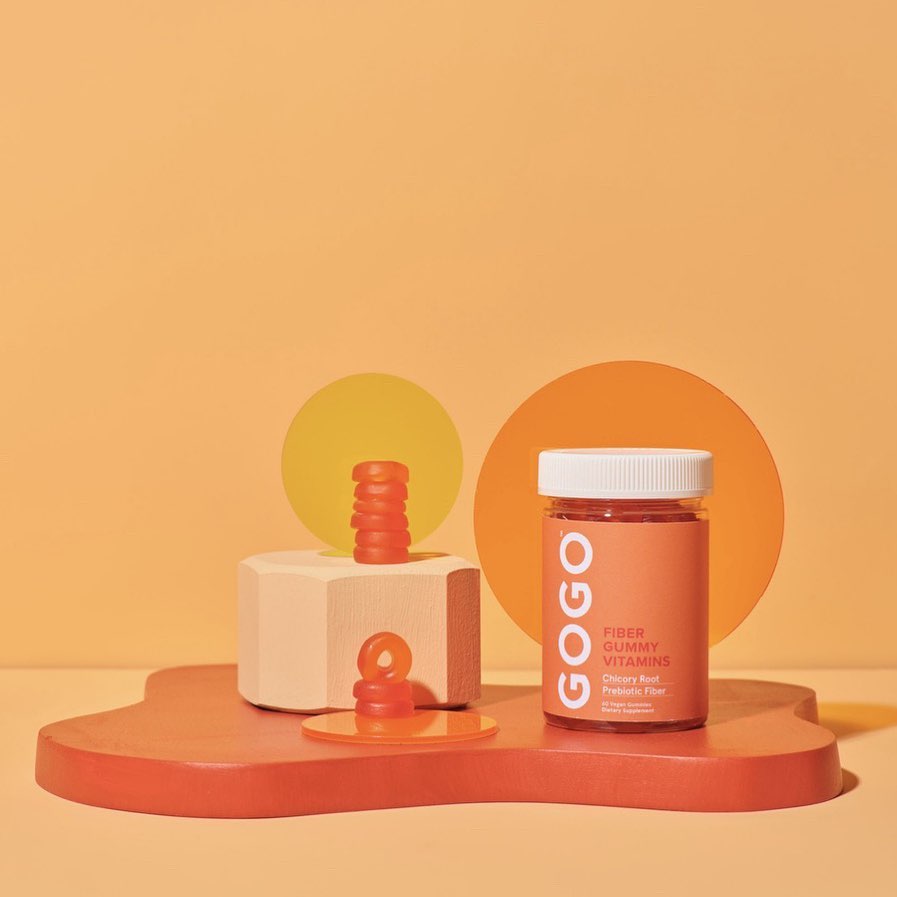
Ask the community or leave a comment
WRITE A REVIEWCustomer Reviews
Leave a review